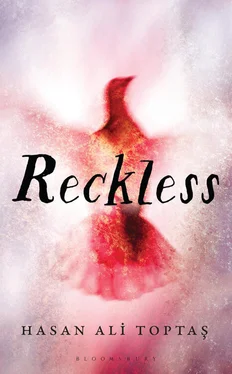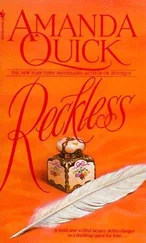‘His name is Yabu,’ one of the cooks told him. ‘He’s the only person in Ceylanpınar who is able to go in and out of this place without first seeking permission. Yade used to come too, but now he’s dead.’
‘Hmmm,’ said Ziya, as he shook his head.
‘If you want to know about Yabu, you should ask Seyfettin in the exchange,’ said the cook, lowering his voice as if to pass on a big secret. ‘He’s the one who knows him best. And the things he’ll tell you. They boggle the mind.’
Ziya went straight upstairs, and down to the end of the corridor next to his office, and here he found Seyfettin, lost in thought and smoking a cigarette at the front of the telephone exchange. He asked him about Yabu.
‘He’s one of life’s sad stories,’ said Seyfettin, taking a long drag from his cigarette. ‘He comes here every day for leftovers, and that’s all he has to eat. This is nothing new; it’s been going on for a long time. Many years ago, on a hot summer’s day, his wife was here, too, and she died right next to those rubbish bins. No one ever asks Yabu what he’s doing there, or why he’s going through the army’s rubbish — we all close our eyes to it. Even the commander. Well, if he came in past the guards, waving his arms around, then maybe they’d have to ask, but he prefers to come over the wall, every time. He must have developed a taste for it.’
Seyfettin fell silent.
‘Is that all?’ Ziya asked.
‘There’s more,’ said Seyfettin. ‘But I’m not sure how to tell you right now. . Yabu’s not the kind of person you can describe just like that. Because he’s a story. A story like you’ve never heard.’
‘How do you mean?’
‘I mean, he’s a story. Yabu is a story, through and through.’
Ziya gave Seyfettin a blank look.
This seemed to make Seyfettin uneasy, and so he turned to look out the window, in the direction of Syria and the town of Ras al-Ayn; they could hear its donkeys braying and its horses neighing, and for a while they listened to those sounds floating over the border.
‘It’s a story I myself read many years ago, in a book,’ he said.
‘What story is that?’ Ziya asked.
‘Didn’t I just tell you, that Yabu was a story? Have you already forgotten?’
Ziya stood up angrily and was about to leave the telephone exchange when he turned around suddenly at the door. ‘Is this some sort of joke?’ he asked reproachfully.
For a moment Seyfettin just looked at him, saying nothing.
Then he said, ‘I swear to you, what I’m saying is true. And in the story I read, Yabu even had a daughter named Gazel, and she set out one night on horseback, to be married in that Syrian town we can see just out the window there — Ras al-Ayn. If you don’t believe me, you can ask Yabu yourself.’
‘What was the name of this book you read?’
‘That’s what I can’t remember.’
‘Who wrote it?’
‘Sadly I don’t remember the author’s name either.’ Opening his arms, Seyfettin added: ‘His name didn’t seem much like an author’s name. Which goes to say that — as far as I remember — he wasn’t well-known, this author.’
‘All right, then,’ said Ziya, and he left.
Late the next afternoon, Ziya left his typewriter and went down to the garden, hoping to see Yabu. And soon he saw him, walking between the lane’s mud-brick walls, and trailed by the usual gaggle of children. And then, as those children pelted him with bottle caps that seemed not to offend him, he clutched the wall and straddled it and hurled himself into the garden like a dirty, hairy sack. And that was when Ziya walked towards him, very slowly, and gently.
‘Baba,’ he said, and his voice was as gentle as the look on his face. ‘May I ask you something?’
Yabu looked at him in silence, his eyes caught.
‘Ask me.’
‘Do you have a daughter named Gazel?’ Ziya asked.
Yabu slowly bowed his head, and swallowed.
In a stern voice, he said, ‘This is not a question anyone should ever ask, my child.’
And then, without another look at Ziya, he went shuffling in his plastic slippers towards the rubbish bins next to the kitchen door.
Ziya felt so bad about asking the question that he died a thousand deaths, of course. He felt so bad he even stayed away from the garden for a few days; instead, when he had finished his work, he would stand next to the typewriter, gazing through the window at the town of Ras al-Ayn, smoking one cigarette after another. And they had at long last completed the new company headquarters, whereupon he left Ceylanpınar for good, anyway, in the truck carrying the contents of his office, which passed in front of Mezartepe, Seyrantepe, Ege and Boztepe stations on its way to Telhamut. And so it was that he left Yabu behind him, along with the aroma of hot bread floating from those earthen-roofed houses, ringing with the voices of women and children, and fluttering curtains, and strings of red peppers, and the creaking, clacking horse carts. And what took their place, of course, was the bare and yellow sun-baked earth, stretching mournfully as far as the eye could see.
When they reached Telhamut, with those clouds of dust pursuing them, Kenan came running up to greet him. Once the commander was out of sight they embraced each other. Then and there, they brought each other up to date. Together they unloaded the metal cabinets and tables and dossiers and carried them over to the new building, which was all on one level, with an entrance flanked by columns. Across from this building was a prefabricated guardhouse that looked just like Seyrantepe, and twenty-five paces beyond, on the other side of a barbed-wire fence, was a white flagpole and a rusty water pump. Just a bit below all this, on the other side of the train tracks, was a little station, and a hamlet made up of nine whitewashed houses, each one lower than the last. This was why there had to be a gap in the minefield behind the new building, before it continued on to Akçakale in parallel with the train tracks. Whichever direction it was coming from the Toros Express always slowed down when pulling into this station. It crept down the tracks like a tired old reptile, almost, hissing faintly, but never sounding its whistle. There was no stopping it, either, unless the commander had ordered it to do so; it would creep on quietly down the tracks, watched only by the handful of children playing in front of the mud-brick houses and the stationmaster standing guard, towards Ceylanpınar, or Akçakale. And before long, it would be lost inside the yellow earth’s humming.
Living in the village’s nine mud-brick houses were the railroad’s employees and their families, and their lives were as dry and impossible as the soldiers’. Like the soldiers, they had to live without streets and avenues, shops and markets, parks and gardens. They didn’t have a school, either, or a clinic. If they wanted to meet with friends and family on holidays or weekends, they wanted to go to Akçakale or Gaziantep or Ceylanpınar, they had to get permission from the commander. This was because the commander could at any time call out every last one of them, old and young, and line them up next to the well at the back, and do a roll-call. If anyone was missing, or if anyone had for any reason rubbed him up the wrong way, he had no qualms about giving them hell. Because the electricity ran from the State Battery Farm to the company headquarters, and from there to those mud-brick houses, he would, for example, cut off their electricity until they screwed their heads back on. And then the village itself would shudder, almost as if it was crying. A little shiver would pass across its earthen rooftops, and the grass around their walls would go yellow, sending faint reflections to swirl through the empty spaces around the well at the back, and while all this was going on, the village itself would move twenty-five or maybe even thirty paces closer to Syria. And then, amongst those faint reflections, you would just begin to see faces, some very pale faces, and as they took on substance, you would begin to see the windows these women were standing in, and the doorways. And then, clutching their children, or holding them in their arms, they would cross over to the company headquarters and stand in front of the commander’s office and, for hours on end, beg for mercy.
Читать дальше












